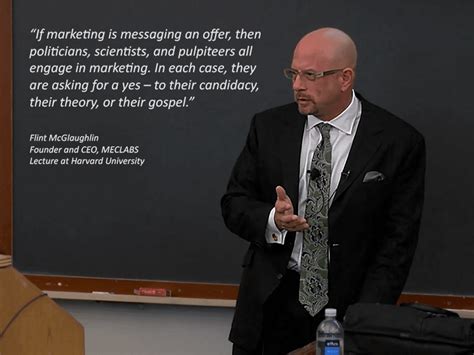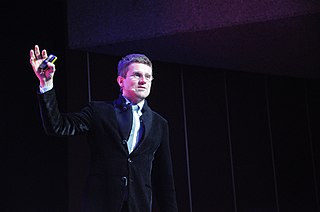A Quote by Brendan Eich
Brave browsers block everything: initial signaling/analytics scripts that start the programmatic advertising 'dirty pipe', impression-tracking pixels, and ad-click confirmation signals.
Related Quotes
I'm not an ad-libber. If I'm asked to ad-lib, I can ad-lib forever and it's really fun to do that, but I find that well-written scripts are put together very carefully. Once you start to ad-lib and add words to sentences, there's a slacking that happens. When it's good writing, it's taut. I'm not judging people who do ad-lib.
Imagine you're watching '30 Rock' and an ad comes on, but you don't like it. With Hulu Ad Swap, you can actually click the button and trade out the ad. So for the first time ever, a consumer is in control of their ad experience. For us, it's a big win because users are able to take control of what they see.
You look to Google, you see this incredible world of information, you see the advertising, but you also get Google Analytics. And Google Analytics coupled with Salesforce's sales and service and marketing means that both of our customers are going to have customer insights that they've never had before. That is really exciting.
When you think about normal advertising, it's just like, hey, here's a car and, you know, we don't know if you're looking for a car or not. So Google promised that mental state, and then were able to prove that delivering the message at the exact right moment would make someone click on something. So they pioneered the idea that advertising could be profitable on the internet, that a specific, very micromental state could be targeted. And they established the primacy of the click, which has haunted us ever since.
One of my jobs was at a start-up ad agency. They were trying to do things differently, work with socially conscious clients, and to really be a more creative take on advertising than the industry itself. But I noticed that what the guys at the office were circulating for inspiration still came from within the ad industry. I thought that was really counterintuitive - to only borrow inspiration from within your own industry.
In my first start-up, I had an initial advertising budget of $5 per day total. That would buy us 100 clicks per day. At $5 per day, marketing people scoffed and said that is too small to matter. But if you think about it, to an engineer, 100 real humans everyday giving your product a try means you can really start improving.



































